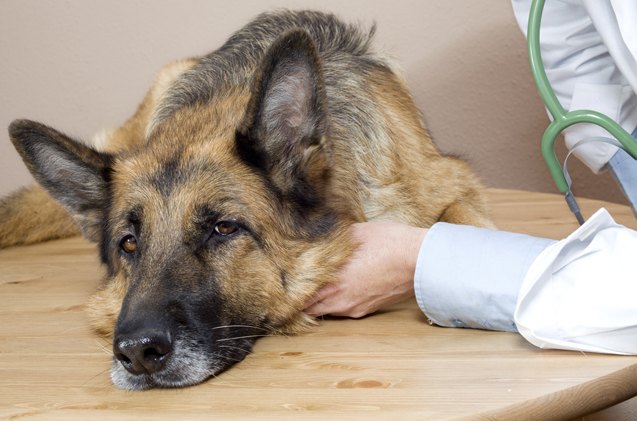7 Common Symptoms Of Diabetes In Dogs

A common disease in humans, diabetes is now a growing concern in dogs. It’s important that owners are able to recognize the symptoms of diabetes in dogs in order to get their pooch into the veterinarian and treated right away. Here’s what you should be looking for:
Increased Appetite: Your dog’s stomach is a bottomless pit of hunger – if this isn’t a normal occurrence, it could be a sign of something a lot more serious. And even though your dog is eating a lot more, he’s not gaining any weight. This is one of the signs of diabetes in dogs.
Weight Loss: Even though your dog may be hungrier then ever, he’s losing weight. This sudden weight loss is a common signal that your dog may have diabetes, as this disease causes an increase in metabolism.
Excessive Thirst: Also known as polydipsia, you’ll notice that your dog is drinking more water. This is because your dog has an excess amount of glucose they can’t to process and the only way to get rid of it is by urinating.
Frequent Urination: If you notice more accidents (this can happen anywhere in the house or in the bed/crate) or more trips outside to go to the bathroom, this could be one of the early warning symptoms of diabetes in dogs.
Weak and Tired: Your dog just doesn’t want to play, walk or do much of anything anymore. He’s not lazy; he just may have one of diabetes calling cards, which causes a dog to be less active, sleepy and lethargic. As well, diabetes can also waste away a dog’s back muscles.
Vision Loss: Diabetes can cause the formation of cataracts or clouds in the eyes. Keep an eye out for this problem before it develops into blindness.
Loss Of Coat/Hair: Your dog’s once luxurious coat becomes lackluster and begins to fall out, usually starting along the back. You’ll notice that it becomes thin and dull before falling out. This could also be a symptom of other canine diseases, so be sure to mention other problems to your vet.
If your pooch is exhibiting these common symptoms of diabetes in dogs, please take him to the vet as soon as possible. Your vet will be able to confirm diagnose and develop a plan of treatment to ensure that your dog gets the best care possible and is able to live a normal, healthy life.

Amy Tokic, Editor of PetGuide.com, is a passionate animal lover and proud pet parent of Oscar, a Shih Tzu/Chihuahua cross, and Zed, a Japanese Chin. Her love of animals began in kindergarten, when she brought her stuffed dog Snoopy into class with her every day. Now, she writes about her adventures in pet ownership and tirelessly researches products, news and health related issues she can share with other animal enthusiasts. In her free time, Amy loves perusing used book and record stores, obsessing over the latest pet products available and chasing squirrels with wild abandon (a habit attributed to spending too much time with her pooches).
More by Amy Tokic






















